
People laugh when I tell them how the two of us became acquainted. It happened this way. I took my résumé, cover letter, some clippings, and photos from my work as a newspaper reporter-photographer and bundled the whole mess together, addressed it to this magazine, and put it in the mailbox. Then I dutifully raised the red flag on the box so the postal carrier would be sure to stop. I went inside and cracked open the New York Times.
By then, my journalism professor had passed away, but you might say I could still hear his voice exhorting his students to always read the obituaries. If anything, read them first. "You always want to find out who just died," he said. My professor was Arnold Brackman (he has a Wikipedia page), and he was tremendously wise in many things, but especially journalism.
So, I turned to the obits and learned that the editor-in-chief of Popular Mechanics, John Linkletter, had just died. Although I never knew him, I was told that he was adored by his staff, a mentor to many, and emblematic of his generation-a WWII Navy pilot serving off of carriers and a sturdy son of the Midwest. But there he was, gone.
Then opening Popular Mechanics to its masthead page, I saw that executive editor Joe Oldham was next in line. Now you may find this pathetically innocent, too young to know better, or just plain dumb, but I assumed that Joe would be promoted to editor-in-chief. So, I went out to the mailbox, fetched my package, and retyped a new cover letter, addressed to Joe Oldham, Editor in Chief, Popular Mechanics. I redid the label and slipped the package back into the mailbox. Minutes later, along came the U.S. Postal Service.
Diese Geschichte stammt aus der September - October 2024-Ausgabe von Popular Mechanics US.
Starten Sie Ihre 7-tägige kostenlose Testversion von Magzter GOLD, um auf Tausende kuratierte Premium-Storys sowie über 8.000 Zeitschriften und Zeitungen zuzugreifen.
Bereits Abonnent ? Anmelden
Diese Geschichte stammt aus der September - October 2024-Ausgabe von Popular Mechanics US.
Starten Sie Ihre 7-tägige kostenlose Testversion von Magzter GOLD, um auf Tausende kuratierte Premium-Storys sowie über 8.000 Zeitschriften und Zeitungen zuzugreifen.
Bereits Abonnent? Anmelden

ONE OF THE 'GREATEST THREATS' TO THE PACIFIC NORTHWEST ISN'T WHAT YOU THINK.
EXPERTS ARE PREPARING THE REGION AGAINST THE THREAT OF DANGEROUS VOLCANIC MUDFLOWS, KNOWN AS LAHARS, WHICH COULD INUNDATE THE COMMUNITIES SURROUNDING MT. RAINIER IN AS LITTLE AS 30 MINUTES.

THE WORLD'S TOUGHEST ROW
They rowed 3,000 miles across the Atlantic, battling unpredictable weather, chaotic seas, and finicky equipment. But what they discovered gave them profound new insights into the power of the ocean.
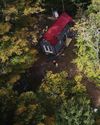
HOW TO DIY OFF-GRID SOLAR
SPEND THE TIME UP FRONT AND PLAN IT CAREFULLY TO AVOID DISAPPOINTMENT
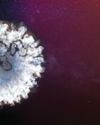
Are We on the Verge of an ARMS RACE in SPACE?
RUMORS OF A RUSSIAN SPACE NUKE, ALONG WITH OTHER SATELLITE-TARGETING WEAPONS, HAVE MADE GEOPOLITICAL TENSIONS EXTEND INTO ORBIT.

Fresh Fingerprints on an Ancient Statue
A CLAY FIGURINE HAS SPENT MILLENNIA incomplete, waiting at the bottom of a lake for its long-dead craftsman to finish the Iron Age-era statuette.
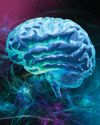
Quantum Entanglement in Our Brains
IT HAS LONG BEEN ARGUED THAT THE human brain is similar to a computer. But in reality, that's selling the brain pretty short.

The Tools of Copernicus
WAY BACK IN 1508, WITH ONLY LIMited tools at his disposal, Nicolaus Copernicus developed a celestial model of a heliocentric planetary system, which he described in hist landmark work De revolutionibus orbium coelestium. It was a complete overhaul of our conception of the universe-one that, unfortunately, earned him the ire of the Catholic church for decades after his death-and forever changed the way we look at the stars.

Building a Sixth-Generation Bomber Raptor
THE GLOBAL COMBAT AIR Programme (GCAP)-a project by the U.K., Italy, and Japan to develop a sixth-generation stealth fighter-has been busy at the drawing board reshaping its vision of the future of air warfare. And judging by the new concept model unveiled at this year's Farnborough air show, that future has big triangular wings.
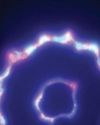
The Electroweak Force of the Early Universe
TODAY, THE UNIVERSE AS WE KNOW IT IS governed by four fundamental forces: the strong nuclear force, the weak nuclear force, electromagnetism, and gravity.
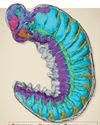
This Ancient Fossil With a Brain and Guts
WE KNOW WHAT FOSSILS LOOK like. For example, typical dinosaur fossils are bones turned to stone and preserved from the passage of time, located, if we're particularly lucky, in large collections that can be reassembled to represent the beast they used to prop up in their entirety.